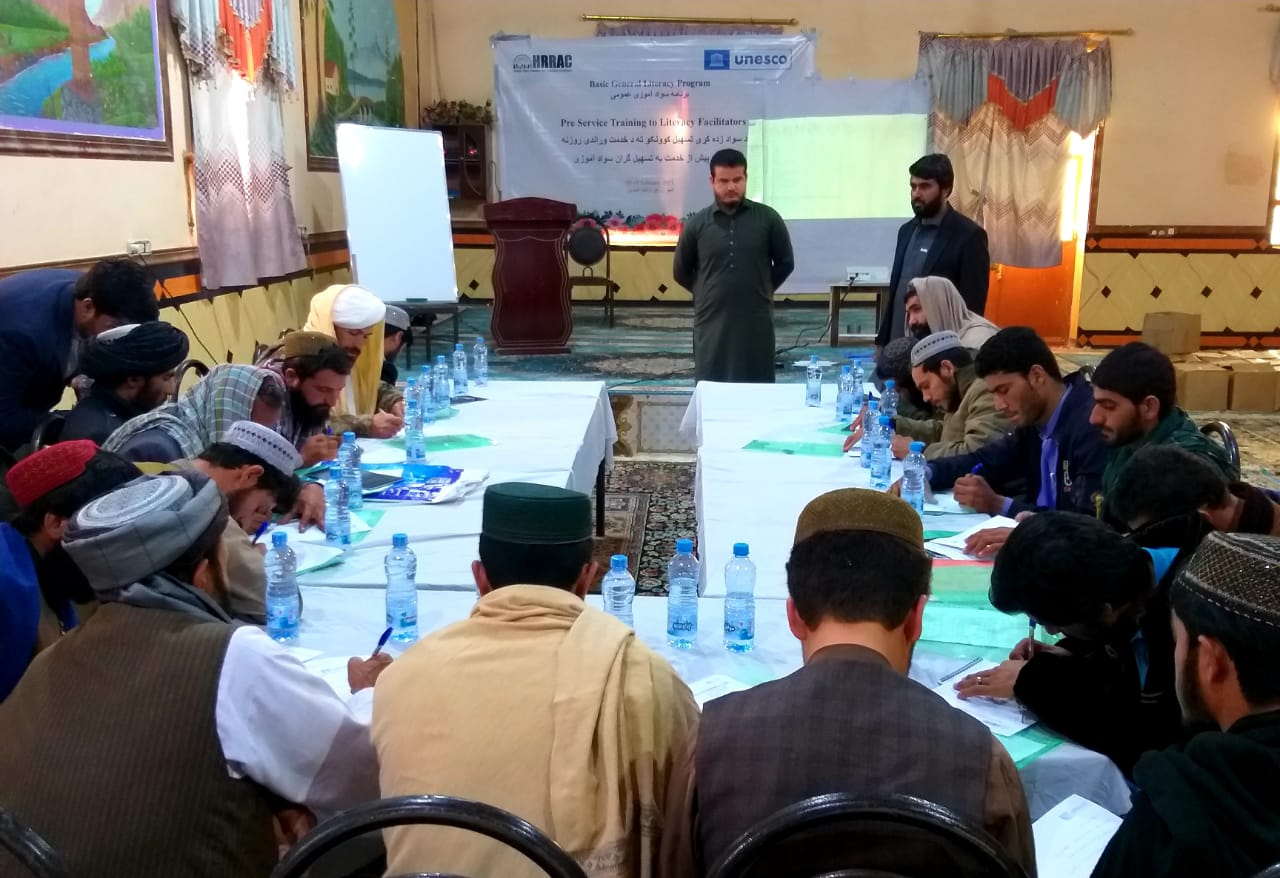
Millions of Afghans, especially women and girls, have been denied to access formal education as a result of the decades of conflict, poverty and other barriers. A high percentage of adults, being illiterate, while the percentage of illiterate women is even higher.
Southern Afghanistan, including Nimroz, remained an epicenter of the deadly Afghan conflict in the past couple of decades. This further reduced the limited capacity of the province education sector to reach a vast majority of the provinces’ residents. The decades long conflict destroyed the already meagre educational facilities, as the schools’ remained bases for the opposing armies, thus, rendering several thousand of men and women, without the service of education and literacy.
To help improve the literacy among young adults, HRRAC with the technical and financial support from United Nation’s Educational Scientific and Cultural Organization (UNESCO) will arrange a 9-month basic general literacy (BGL) course for 1000 adults in 4 districts of Nimroz province, namely Chakhansoor, Kang, Charburjak and Khashrood. The target districts and locations are selected with the consultation of the provincial education department. The communities in the target districts are largely tribal in nature and does not have a great deal of ethnic or cultural diversity.
HRRAC will arrange gender segregated classes for both sexes. In total, HRRAC will establish 67 classes in the province, a minimum of 43 classes will be solely arranged for female learners. Each class will be facilitated by a respective male and female facilitator. The facilitators will receive an extensive training before formally starting the classes. The classes will be regularly monitored by district community mobilizers for proper functioning to achieve the desired target. The number of students will range from 15-20 per class. The curriculum to be taught is prepared by literacy curriculum experts at UNESCO and Ministry of Education (MoE), Islamic Emirates of Afghanistan (IEA). The text books include Language books, basic mathematics, and the Holy Quran. The 9-month course will be equivalent to grade three of formal education. Certificates will be provided by the provincial directorate of education (DoE).
The ultimate objective of the project is “Afghans over 15 years previously excluded from education have the knowledge, skills, attitudes to contribute to the welfare of society”.
The project has the following main activities: